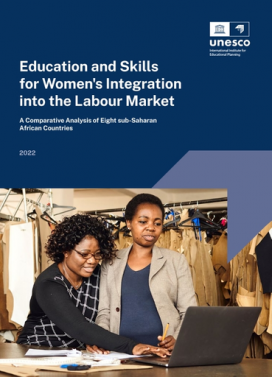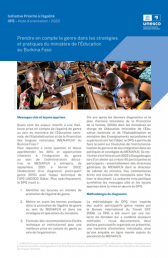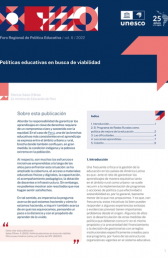
About the publication
This paper seeks to shed light on the current challenges faced by eight selected sub-Saharan African countries, namely Burkina Faso, Chad, Mali, Mauritania, Mozambique, Niger, Nigeria, and Sierra Leone, in achieving the integration of women into the labour market through education and training. In almost all these countries – except Sierra Leone – women are less likely to be employed than men. Moreover, most employed women have insecure, low-paying, and informal jobs. In addition, women performing these jobs are hardly protected against job losses. The lack of protection is also apparent in times of illness and when they are ageing. More women are concentrated in occupations and sectors that are characterized by low status and low remuneration. Furthermore, they continue to be underrepresented and excluded from sectors and jobs that involve greater responsibility, pay more salaries, and offer potential for growth. The reasons for the under-representation of women in prestigious jobs are varied and are rooted on factors such as gender norms and stereotypes, unpaid care at home, and legal frameworks that are unfavourable to women. This paper aims to present a diagnosis of women’s situation in terms of their integration into the labour market. It will focus mainly on the role played by education and training in attaining gender parity and identify practices that will potentially address the marginalization of women in the labour market.









